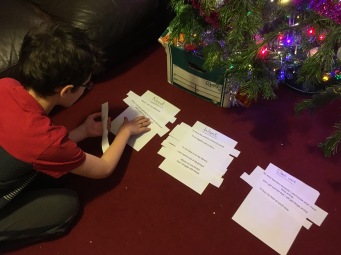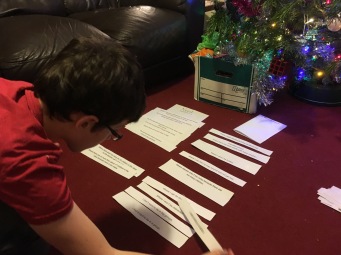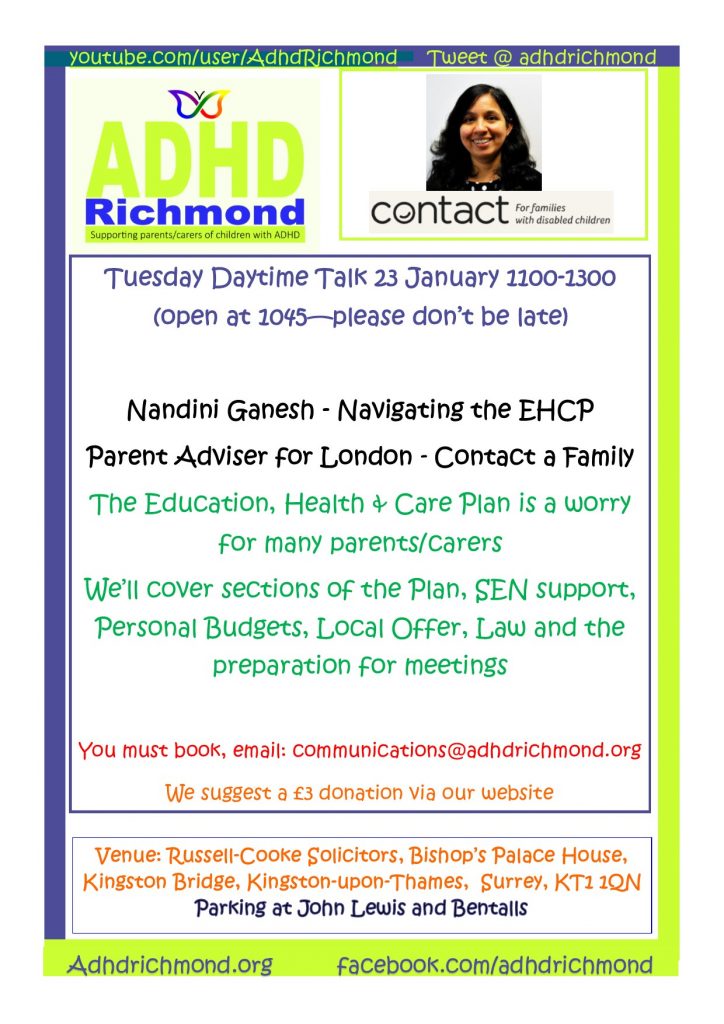#EHCP : how to collect a child’s authentic voice? via @StarlightMcKenz Come to our 23 Jan Talk
In November I attended the conference ‘Two Years of Education Health and Care Plans: Are we there Yet?’ at the University of Roehampton where the results of a research project on the quality of Education Health and Care plans (EHCP) were presented, and implications for children, families, professionals and policy was discussed. A large focus of that conference was Part A, and research presented on the likely authenticity or otherwise of the child’s voice. It raised many questions for me which I blogged about Here. However, it did lead me to better consider how I might get my son’s authentic voice for Part A and Secondary Transfer.
I believed that asking a child with ASD/ADHD and an expressive Language Disorder (who had never been in a Secondary school), to give their views about their future to a relative professional stranger, requesting this information according to their own school visit schedule, was unlikely to produce an authentic voice. I was already aware of my beliefs that a voice is never isolated but is embedded in relationships, negotiation and perspective.
I also believed that that a child’s wishes and dreams can’t be caught in a moment but will be expressed over time and during intimate moments with people they love and trust. Therefore, I set to collect statements my son made through these many interactions, discussions and sharing of worries, and recorded them in real time in a notebook or on my phone.
When I felt I had enough (and the deadline from the Local Authority was pressing) I typed up the statements and printed them out, cutting them into strips to be sorted by my son under three headings. ‘Need’, ‘Want’ and ‘Don’t Care’. I left him in peace to decide for himself and made no judgements when I returned.

When that was completed, we focused on just the category of ‘Need’ and with ‘Most Important’ at the top and ‘Least Important’ at the bottom, my son ordered the list of statements. Again, I made no comments and my son seemed to enjoy the task and the feeling that he could have some say in what he thought he needed without anyone demanding that he use language he finds difficult.

It was interesting to find out that the top 3 Needs as identified by him were ‘A school where everyone understands all about me’, ‘Where there are school trips to Italy’, and ‘Where I can get qualifications to have my own house with 2 rooms and go to my job’.
Because we were no longer working from a blank slate or an abstract concept where he was expected to come up with ideas from nowhere or make anxiety-inducing big decisions about his future, I was then able to ask if there was anything missing that he’d like to include. He added at the very top: ‘To find going to school every day fantastic’ and ‘I need a school that does very well and treats me in the way I like and understands me, like my school now’.
Brilliant basis on which to build his Outcomes for Part E, I’m sure you’d agree.

